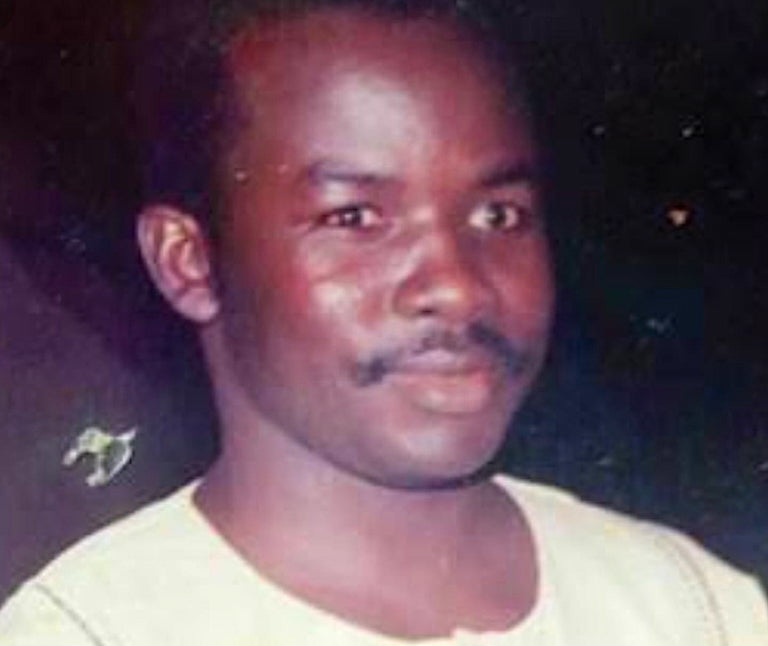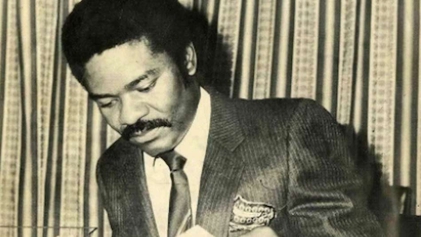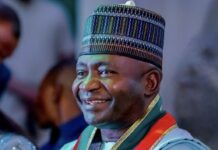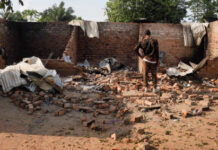By Shu’aibu Usman Leman
Following my recent piece, “A Tribute to Courage: Upholding Justice and Protecting Press Freedom in Nigeria,” the Nigeria Union of Journalists’ (NUJ) 70th anniversary is overshadowed by the unresolved killings of Dele Giwa and Bagauda Kaltho. The enduring silence surrounding these appalling acts emboldens those who seek to stifle dissent and conceal the truth – a bloody stain on our democracy. Though these journalists were murdered during military regimes, these vile deeds remain a blot on our democratic institutions and leaders who continue to act as if no crime occurred.
Dele Giwa, the founding editor of Newswatch magazine, was assassinated by a parcel bomb in 1986. His sharp investigative journalism, exposing corruption during General Ibrahim Babangida’s military rule, is widely considered the motive. Nearly four decades later, justice remains elusive.
Chief Gani Fawehinmi,a distinguished Nigerian lawyer and human rights advocate, initiated legal action against the Federal Government, alleging their culpability in Giwa’s assassination. The case, Fawehinmi v. Babangida (No. 2) (1987), became a landmark constitutional law case in Nigeria.
Fawehinmi argued that the government’s failure to conduct a thorough investigation and prosecute those responsible for Giwa’s death constituted a violation of his fundamental human rights. He further contended that the government was directly implicated in Giwa’s death, citing evidence of official involvement.
Conversely, the government denied any involvement in Giwa’s murder and challenged Fawehinmi’s locus standi (legal standing) to bring the case.

They also argued that the litigation was an abuse of process.
The court ultimately ruled in Fawehinmi’s favour, establishing his right to initiate the legal action and affirming the government’s obligation to investigate and prosecute those responsible for Giwa’s murder. However, the court did not find the government directly liable for Giwa’s death.
This case was of considerable significance, as it established the principle that individuals have the right to seek redress and hold the government accountable for breaches of human rights. It also underscored the imperative for the government to investigate and prosecute those responsible for human rights abuses.
The tragic death of Bagauda Kaltho, mired in controversy, demands equal scrutiny. Three years ago, Dr Mahdi Shehu alleged on Arise TV that the United States government, through its political attaché, Russell Hanks, induced Kaltho to plant a bomb at the Durbar Hotel in 1996, resulting in his death. Dr Shehu claimed this was part of a campaign to destabilise General Sani Abacha’s regime.
According to Dr Shehu, this act was part of a broader bombing campaign aimed at effecting regime change. He further asserted that he had informed the then-Military Governor of Kaduna State, Colonel Lawal Jafaru Isa, about Hanks’ alleged attempts to recruit him for this nefarious plan and how Kaltho was unwittingly drawn into the scheme. He claimed that Colonel Isa facilitated a meeting between him and General Abacha, where he recounted the events. Dr Shehu alleged that Hanks left Nigeria shortly after their meeting with the late general.
However, there are key concerns regarding Dr Shehu’s testimony:
Why did Dr Shehu remain silent from 1996 until 2022 before disclosing his purported knowledge of Bagauda Kaltho’s death and the alleged involvement of Russell Hanks? This prolonged silence raises questions about the veracity and timing of his claims.
Many individuals acquainted with Bagauda James Kaltho dispute the insinuation that Kaltho could have been financially induced to commit an act of terrorism. Those familiar with Kaltho’s character assert that he would not have compromised his journalistic integrity for financial gain.
The timeline of events surrounding Kaltho’s death presents significant inconsistencies. Dr Shehu claims to have seen Kaltho in an American diplomat’s hotel room on 21 December 1996, and then alleges Kaltho died hours later in a bomb explosion. Conversely, Mrs Martha Kaltho maintains that her husband spent Christmas of 1995 with his family in Billiri before travelling to Kaduna. Furthermore, Nigerian police records indicate Kaltho died in a bomb explosion on 18 January 1996.
Dr. Shehu asserts that the bomb explosion occurred in a bookshop within the hotel. However, reports published in Leadership newspaper in 2022 contradict this, stating that an interviewed journalist claimed the explosion took place in a lavatory.
The aforementioned journalist also erroneously claimed that Hon. Rimamnde Shawulu was present in Kaduna at the time of Kaltho’s death. In fact, Shawulu was in Jos on the said day, working as a reporter for BBC London.
In an interview with Leadership newspaper, Brigadier General Lawal Jafaru Isa (Rtd), the military governor at the time, stated that while he was aware of the 1995 bomb explosion, he did not recall Dr Shehu’s alleged encounter with Kaltho and Hanks, nor did he remember arranging a meeting between Dr Shehu and General Abacha.
The assertion by Dr Shehu that Russell Hanks attempted to bribe him in a manner resembling an amateurish plot is inconsistent with the sophisticated methods typically employed in international espionage. Foreign governments’ targeted actions generally focus on individuals perceived to pose a threat to their interests or stability. The suggestion that a journalist would be the target of such an elaborate conspiracy by a major world power is therefore difficult to accept.
Given General Abacha’s well-documented reputation for ruthlessly suppressing threats to his regime, it seems improbable that he would not have taken decisive action against those allegedly involved in attempts to instigate a coup, had he been informed of such activities.
These inconsistencies necessitate a thorough reinvestigation of Kaltho’s case, alongside Giwa’s. Unveiling the truth is essential for justice and the preservation of press freedom.
The murders of Giwa and Kaltho reflect a dark period in Nigeria’s history and resonate in the ongoing battles for civil liberties and accountability. The failure to resolve these cases creates a climate of fear and impunity.
It is instructive to note that efforts to secure justice for journalists who fall victim to impunity often end in disappointment, as authorities frequently dismiss these attempts as inconsequential. This is exemplified by the case of the Nigeria Union of Journalists (NUJ), which took the Federal Government of Nigeria to court following the brutal killings of two Nigerian journalists in Liberia at the hands of Charles Taylor: Tayo Awotunsin of the Champion and Krees Imodibie of The Guardian. They went to Liberia in May 1990 and disappeared in July of that year, having been seized by rebels of Charles Taylor’s National Patriotic Front of Liberia.
Their tragic deaths occurred while they were covering the Liberian civil war, a fact first revealed by General Joshua Dogonyaro, the Commander of the West African Peacekeeping Force in Liberia- ECOMOG, who announced in February 1991 to journalists, “Your two colleagues have been killed by Taylor. That is certain. I don’t have any doubt about that.”
At the height of the conflict, Charles Taylor reportedly threatened the lives of numerous West African hostages, including Nigerians, in an attempt to force the withdrawal of the West African troops deployed to enforce a ceasefire. Taylor claimed that these forces were attempting to support the regime of President Samuel Doe, which heightened tensions and placed many at risk.
While various accounts emerged regarding the circumstances of the journalists’ deaths, one notable perspective came from Nigerian columnist Lindsey Barret. Having returned from Liberia then, he published an article in the Sunday Times in 1991, citing unnamed witnesses who testified that, although Taylor did not explicitly order their execution, his vehement attacks on West African nationals directly contributed to the two Nigerians’ tragic fate.
In 2003, Charles Taylor was granted asylum in Nigeria amid global criticism. The NUJ’s outrage led them to seek legal recourse, filing a lawsuit to prevent Taylor’s return to Nigerian soil. In an ex parte motion filed on 8th August 2003, under case number No FHC/ABJ/CS/369/2003, the Abuja High Court ruled in favour of the NUJ, permitting them to serve legal notices to Charles Taylor through Nigeria’s Attorney General, with a subsequent court date set for 14th August 2003.
Unfortunately, the slow and cumbersome nature of legal proceedings in Nigeria allowed Taylor to enter the country before substantial progress could be made in the case, which ultimately lapsed. Nevertheless, under the leadership of then-NUJ President, Smart Adeyemi, the NUJ tirelessly campaigned for Taylor’s extradition to the Sierra Leone War Tribunal, established by the UN to pursue charges of war crimes.
The NUJ’s perseverance bore fruit when Charles Taylor was eventually handed over to The Hague, where he was convicted and sentenced to 50 years’ imprisonment for his crimes against humanity. This outcome serves as a testament to the enduring fight for justice, despite the numerous challenges encountered along the way.
As the NUJ continues to celebrate its 70th anniversary, it must reignite the call for justice. Seminars and public engagements can promote awareness and dialogue. Reopening these investigations can catalyse systemic reforms, signal a commitment to the rule of law, and empower journalists to report without fear.
It is a matter of considerable note that the Lagos State Government had, with commendable foresight, honoured the memory of Bagauda James Kaltho by naming its Press Centre in Ikeja after him. This act serves as a poignant reminder of Kaltho’s dedication and sacrifice.
However, it is with a degree of concern that we observe the Gombe State Government’s apparent oversight in failing to similarly acknowledge Kaltho’s legacy. As a native of Billiri, Gombe State, his contributions and the circumstances surrounding his demise warrant recognition within his home state.
While it is plausible that His Excellency, Governor Inuwa Yahya, may not be fully apprised of the particulars of the Kaltho case, we hold him in high regard as a leader of probity and pragmatism. We are confident that, upon due consideration, he will take the necessary and fitting steps to address this omission.
We respectfully urge the Gombe State Government to rectify this oversight and accord Bagauda James Kaltho the recognition he deserves, thereby ensuring that his memory is honoured within his own community and state.
In memory of Giwa and Kaltho, government officials, civil society, media professionals, and citizens must unite in demanding justice. Reopening these investigations is a moral imperative, essential for building a robust and resilient democracy. We must ensure that their struggles and ideals are not forgotten.
Leman is a former National Secretary, Nigeria Union of Journalists (NUJ)
email: shuaibuusmanleman@yahoo.com










